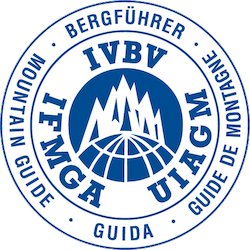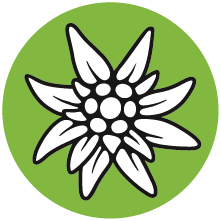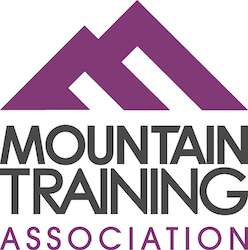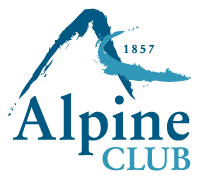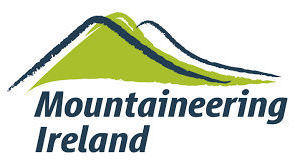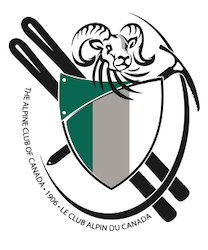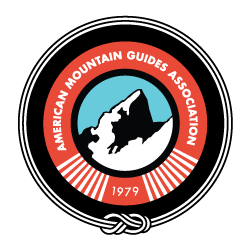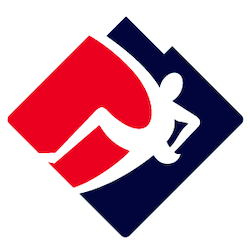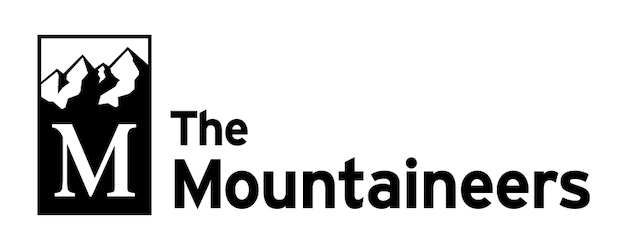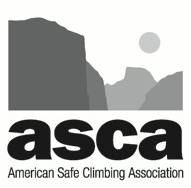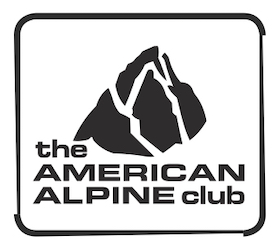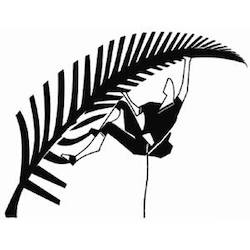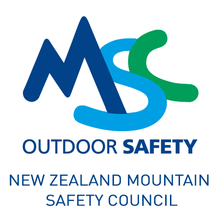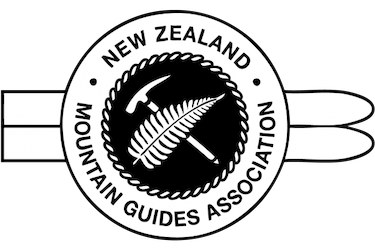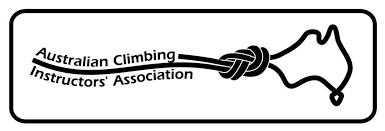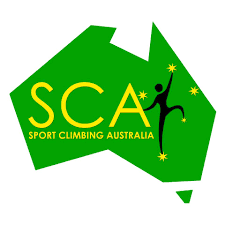Climbing is becoming an incredibly popular sport, with more and more people taking to the crags, the mountains, and indoor gyms each year.
While climbers are known for being a transient bunch, there are actually quite a few amazing climbing organisations out there that are designed to promote the varied interests of climbers around the world.
It can be difficult to parse out precisely what each of these many climbing organisations does, so to help you out, we’ve created this list of the 25 climbing organisations you should know about.
We’ve broken them up by region, including the top international organisations as well as those from the UK/Ireland, the United States, Canada, and New Zealand/Australia.
Let’s get to it!
International Organisations
International Federation of Mountain Guides Associations (IFMGA/UIAGM/IVBV)
The International Federation of Mountain Guides Associations - also known as the IFMGA, UIAGM, or IVBV, depending on what language you speak - is the world leader in mountain guide training, education, and certification.
The organisation was founded in 1965 by mountain guides from Austria, France, Switzerland, and Italy as a way to promote the professionalism of mountain guiding on a global scale.
Today, the IFMGA is comprised of over 20 countries from Europe, Asia, North and South America, and Oceania, with a total membership of over 6,000 guides. Mountain Guides who are fully certified by their home country’s member organisation earn the coveted title of International Mountain Guide, which is the world’s highest guiding qualification.
Many IFMGA member organisations also provide training for climbing instructors and help set standards for best climbing practices around the world.
International Climbing and Mountaineering Federation (UIAA)
The International Climbing and Mountaineering Federation (UIAA) was founded in 1932 to promote and protect mountaineering and climbing interests around the world. These days, the UIAA represents over 90 member associations and federations within 68 different countries on 6 continents, giving it a global presence in the international climbing community.
One of the main focuses of the UIAA is to uphold safety and technical standards for climbing equipment.
Developed in the 1960s, the UIAA Safety Label is given to equipment that meets the testing requirements for a particular type of gear. The UIAA stringently tests a wide variety of gear to help ensure that only quality equipment is used in the mountains.
International Federation of Sport Climbing (IFSC)
The International Federation of Sport Climbing (IFSC) is the international governing body for competition climbing. The IFSC was created in 2007 and is considered an Olympic Sport Federation.
The IFSC can also be considered an umbrella organisation that includes member climbing federations from countries on six continents.
The main objective of the IFSC is to regulate, promote, and develop the world of competition climbing both on local and international scales.
The IFSC is the governing body for international sport climbing competitions, such as world cup events. Additionally, as a result of climbing’s inclusion in the 2020 Olympic Games programming, the
IFSC is now the tasked with organising Olympic Qualification events for climbers around the world.
UK and Ireland-Based Organisations
The British Mountaineering Council (BMC)
The British Mountaineering Council is the national organisation that represents climbers and mountaineers in England and Wales. The purpose of the organisation is to protect and promote the interests of hill walkers, climbers, and mountaineers.
Anyone can be a member of the BMC and these days, the organisation has some 75,000 members and 280 affiliated clubs. Membership with the BMC has a whole host of benefits, including access to the BMC’s travel insurance, gear discounts, training advice, and a magazine subscription.
The BMS also produces climbing guidebooks for various part of England and Wales. Additionally. The BMC is the UK’s representative in the International Federation of Sport Climbing (IFSC).
Mountaineering Scotland
Mountaineering Scotland, formerly known as the Mountaineering Council of Scotland, is the national organisation representing climbers, mountaineers, hill walkers, and snowsports enthusiasts in Scotland.
The organisation has over 14,000 members and tasks itself with promoting responsible participation in mountain pursuits.
Mountaineering Scotland offers memberships to individuals which give them access to a variety of benefits, including gear discounts, magazine subscriptions, access to subsidised mountain skill courses, liability insurance, and mountaineering huts.
As an organisation, Mountaineering Scotland is also active in creating accessible training opportunities for new and experienced mountaineers, alike, at a variety of places across the country.
Austrian Alpine Club (UK) - Österreichischer Alpenverein (Sektion Britannia)
The AAC(UK) is one of the largest mountaineering organisations in the UK. While it may seem odd to include the Austrian Alpine Club as a British and Irish climbing organisation, the club actually runs an English-speaking UK section which offers British and overseas members a fantastic array of benefits.
One of the best benefits of membership in the AAC(UK) is the club’s great rescue, medical, and repatriation insurance, which is included at no additional cost to members.
Membership in the organisation also gives individuals discounted accommodation in nearly all alpine huts that belong to members of the National Alpine Mountaineering Federations. Plus, members can sign up for some fun and educational alpine training courses with the club to improve their own climbing skills.
Mountain Training Association (MTA)
The Mountain Training Association (MTA) is the collection of national governing bodies for mountaineering in the United Kingdom and Ireland.
The organisation oversees the awarding of qualifications in hill walking, climbing, and mountaineering in the UK and Ireland, so they’re your main source of information and training to become an outdoor professional in these two countries.
Membership in the MTA or one of its member organisations gives individuals access to the MTA’s many training schemes, including the Mountain Leader (ML) qualification, the International Mountain Leader qualification (IML), the Rock Climbing Instructor qualification (RCI), and the Mountaineering and Climbing Instructor qualification.
The MTA also produces a number of handbooks and guides for climbers looking to improve their skills.
British Mountain Guides Association (BMG)
The British Mountain Guides Association (BMG) is the UK’s member organisation in the IFMGA. The BMG represents all British mountain guides working in the UK and overseas, promoting their interests and setting professional standards within the country for qualification.
The BMG offers a comprehensive training programme for people wanting to become qualified international mountain guides.
That being said, the BMG’s training is distinct from the training provided by the MTA as the BMG focuses more on training guides rather than training instructors.
Additionally, qualified BMGs can guide clients in all forms of climbing, mountaineering, and ski mountaineering in some of the world’s most famous climbing locales.
Alpine Club (AC)
The oldest climber’s club in the world, the Alpine Club was founded in 1857 as a social and sporting organisation in the United Kingdom.
The modern AC is dedicated to promoting climbing ethics, protecting mountain regions and the people who call them home from irresponsible climbing.
That being said, the Alpine Club is, and has always been, an exclusive club open only to people who have a demonstrated proficiency and background in climbing at a fairly high level.
Although standards have relaxed a bit since the club’s inception, prospective members must fill out an application detailing their climbing experience and they must have a proposer that is already a full member of the club sponsor their application before it will be considered.
Mountaineering Ireland
Mountaineering Ireland represents the interests of climbers and hill walkers in Ireland. The organisation is considered the national governing body for hill walking, mountaineering, and climbing by Sport Ireland and Sport North Ireland.
The purpose of Mountaineering Ireland is to promote climbing and mountain pursuits in Ireland.
Mountaineering Ireland has a number of initiatives, including their “Get Climbing” programme, which tries to make climbing more accessible to people from different socioeconomic backgrounds.
USA-Based Organisations
The American Alpine Club (AAC)
The American Alpine Club (AAC) is a US-based organisation dedicated to creating a united community of climbers.
They lobby for access to climbing areas, promote responsible climbing practices, and help create a stronger sense of a climbing community within the United States. Additionally, the AAC is working on creating a number of different training programmes to help ensure that US-based climbers are up-to-snuff on their technical skills, wherever their adventures might take them.
Membership in the AAC is open to any and all climbers.
As a member, individuals have access to a range of gear and lodging discounts, rescue insurance, travel grants, a hard copy of the American Alpine Journal, as well as unlimited access to the club’s extensive climbing library.
American Mountain Guides Association (AMGA)
The American Mountain Guides Association (AMGA) is the United States’ representative in the IFMGA. The AMGA is an educational non-profit dedicated to supporting and inspiring a community of mountain guide and climbing instructors.
Fully qualified American Mountain Guides earn the moniker of IFMGA certified guide, but the AMGA also offers a variety of other certifications and courses in three mountain guiding disciplines - Rock, Alpine, and Ski - as well as in their Climbing Instructor programme. Membership in the AMGA is open to all current and aspiring guides.
USA Climbing
USA Climbing is the United State’s national governing body for competition climbing. The organisation promotes three competition disciplines: bouldering, sport, and speed. Additionally, they facilitate five different climbing series, including adaptive, bouldering, collegiate, speed, and sport.
As an organisation, USA Climbing is recognized by the International Federation for Sport Climbing (IFSC), the International Olympic Committee (IOC) and the United States Olympic Committee (USOC). The purpose of the organisation is to help grow the sport of competition climbing and to encourage participation in sanctioned climbing events for all.
The Access Fund
The Access Fund is a climber’s advocacy organisation, dedicated to protecting climbing access within the United States. Land in the United States is a patchwork of privately owned and federal, state, and local land, all of which makes access to climbing sites difficult, particularly as climbing becomes more popular.
Membership in the Access Fund helps the organisation work with lawmakers and land managers to conserve land for climbing. Additionally, funds raised by membership dues and donations are used to support grants and projects to clean up climbing areas, maintain access trails, and build facilities, such as pit toilets at popular climbing areas.
The Mountaineers
The Mountaineers is a Seattle, Washington-based climbing organisation with more than 13,000 active members. The Mountaineers was founded in 1906 and has spent the last 100 years working to get more people outside. They offer hundreds of monthly courses and activities, all of which are led by a team of trained volunteers.
The Mountaineers offers a variety of membership options, which give people access to all of the club’s programming, as well as a host of other benefits. Beyond classes, however, The Mountaineers also has a strong advocacy program that is dedicated to protecting wild places and promoting the responsible use of the outdoors.
The American Safe Climbing Association
The American Safe Climbing Association works to replace the country’s rapidly ageing fleet of fixed anchors with modern equipment. The organisation relies mostly on grants and donations from individuals and companies to replace thousands of pieces of deteriorating fixed gear every year.
To date, the American Safe Climbing Association has replaced over 14,000 old bolts just in Yosemite National Park alone, not to mention thousands of other pieces of fixed gear in other climbing areas around the country.
The American Safe Climbing Association also works to create resources to help individuals and land managers learn more about proper bolting and fixed anchor practices for the long-term betterment of climbing in the United States.
Canada-Based Organisations
Alpine Club of Canada (ACC)
The Alpine Club of Canada is comprised of 24 local sections across the country. The purpose of the club is to give a voice to Canada’s mountaineers and to foster a deeper sense of community amongst like-minded climbers.
Membership to the AAC is open to any and all climbers, regardless of skill level or background. They have different tiers of membership, each with different benefits.
However, as a national member of the ACC, one receives a discounted rate to all 33 of the ACC’s alpine huts, access to ACC publications, and the opportunity to take part in a number of different education programmes.
Association of Canadian Mountain Guides (ACMG)
The Association of Canadian Mountain Guides is Canada’s representative organisation in the IFMGA. The ACMG is comprised of trained, certified, and aspiring mountain guides, hiking guides, and climbing instructors.
As an organisation, the ACMG works to promote proper climbing practices and they strive to protect the interests of mountain guides in legislation.
Anyone may join the ACMG and apply to take courses to acquire ACMG certifications. The ACMG offers a number of different training schemes in three different “streams”: mountain guide, which is comprised of rock, alpine, and ski disciplines; hiking guide; and climbing instructor.
Fully qualified Canadian Mountain Guides get to wear the coveted IFMGA guide pin in the mountains.
Climbing Escalade Canada (CEC)
Climbing Escalade Canada is the Canadian competition climbing organisation. The CEC is a national governing body for competition climbing and is the Canadian representative to the International Federation of Sport Climbing.
The goal of the CEC is to promote the development of competitive climbing in Canada by creating opportunities for climbers to improve their skills and compete on climbing’s highest stage - the world cup.
The CEC is comprised of five voting member organisations, which include climbing federations from British Columbia, Alberta, Ontario, Quebec, and the Alpine Club of Canada.
Australia And New Zealand-Based Organisations
New Zealand Alpine Club (NZAC)
The New Zealand Alpine Club is a community of some 4,000 climbers in New Zealand and Australia. The club has been in operation since 1891 and is dedicated to promoting the sport of climbing throughout the two countries.
Membership to the club is open to anyone who enjoys spending time in the mountain. As a member, one gets access to NZAC’s educational courses and trips, their system of huts, travel insurance, gear discounts, and the New Zealand Alpine Journal.
Climbing New Zealand
Climbing New Zealand is the country’s competition climbing representative to the International Federation of Sport Climbing. The organisation is responsible for facilitating a large series of climbing events and festivals each year, which range from introductory experiences to high-level competitions.
Additionally, Climbing New Zealand helps organise the efforts of local and regional clubs to help develop the sport and make it more accessible to people around the country.
Mountain Safety Council New Zealand (MSC)
Mountain Safety Council New Zealand is mandated to encourage and promote the responsible practice of land-based outdoor activities. The MSC strives to meet this mandate by doing research into accidents and incidents that happen on New Zealand’s wild lands and by creating partnerships with organisations that can help implement their safety-conscious goals.
The MSC works with a council of 27 member organisations who help create strategic planning to encourage outdoor enthusiasts to better educate themselves and manage risk while in the backcountry.
Additionally, they help organise conferences and educational workshops designed to increase education and awareness about mountain-related risk management issues.
New Zealand Mountain Guides Association (NZMGA)
The New Zealand Mountain Guides Association is New Zealand’s member organisation in the IFMGA. The NZMGA membership is comprised of mountain guiding professionals and aspirants from New Zealand and Australia.
As an organisation, the NZMGA offers a number of training schemes designed to qualify individuals in a number of different disciplines.
A member can become certified as an IFMGA guide, a climbing guide, ski guide, alpine trekking guide, or a hard ice guide, depending on the courses and exams they complete.
Australian Climbing Instructors Association (ACIA)
The Australian Climbing Instructors Association (ACIA) works to represent the interests of climbing instructors at crags and cliffs in Victoria, New South Wales, Western Australia, and Queensland. They work to develop professional standards of practice for climbing instructors and help them to gain important qualifications.
The ACIA runs a number of instructor training and assessment courses across Australia, which are considered the gold standard for climbing instruction qualification in the country.
Additionally, the ACIA helps its member work with land managers to get permits and cliff access, as well as to promote the development of environmental ethics and responsibility.
Sport Climbing Australia
Sport Climbing Australia is Australia’s national governing body for competition climbing. The organisation is the country’s representative to the International Federation of Sport Climbing.
As an organisation, Sport Climbing Australia works to develop the sport in a responsible way.
They work with member organisations and key stakeholders to create a sustainable and inclusive climbing community within the country and to foster the development of high-quality competition climbers who can compete on an international scale.
